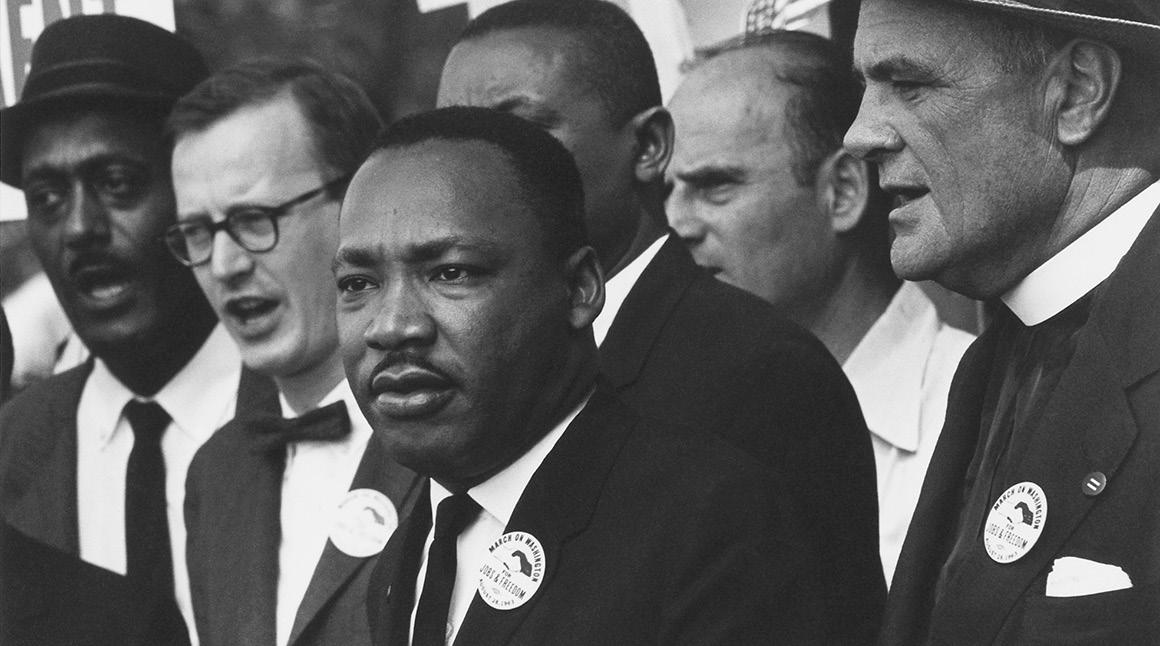
2 minute read
“Hip-Hop Culture Blocks to Boardrooms”
Gang’s, 1979 song “Rapper’s Delight,” died September 29, 2011. Several people were influential in creating hip-hop; the most notable pioneers are DJ Kool Herc, Afrika Bambaataa, and Grandmaster Flash. This opened the door globally, now internationally, that is continually evolving. Black people’s brilliance, resilience, and creativity have existed since our origin. Anything we lay our hands on adds flavor and excellence evident throughout history. HipHop is no different, influenced by skat, jazz, and Last Poets, and during slavery, our hands, feet, and mouth helped us escape reality through good and bad times. Other cultures try to duplicate and replicate but humiliate themselves to emulate Hip-Hop, but it’s organic to the roots.
By Robert L. Bankston

For years when we talk about Black History, we talk about the same people. Even though I agree they were history makers, I wanted to look at Black History through my eyes. Fifty years ago, in 1980, the world heard for the first time, “I said a hip, hop, the hippie, the hippie to the hip hop-a you don’t stop the rock It to the bang-bang boogie, say up jump the boogie to the rhythm of the boogie, the beat.” In 1979 Sugar Hill Gang hit the airways with “Rapper Delight,” the first commercial record and still a pillar of hip hop in every black community and beyond. Selling over 14 million copies of “Rappers Delight” would lay the foundation for a genre 50 years later, Mike Wonder worth 80 million & Big Bank Hank before passing worth 61 million members or Sugar Hill Gang. According to the New York Times -The Real First lady of hip-hop Sylvia Robinson, 75, a singer who performed rhythm-and-blues hits in the 1950s and later found resounding success as a producer who nurtured the birth of a new musical genre, hip-hop with Sugar hill
The rhythm is in our DNA, extending to the heartbeat of our dance, displayed creativity of our graffiti, the methodical technique of scratching & mixing, the glide in our stride, tearing down barriers we did not know existed. Hip-hop is a subculture and an art movement that emerged from the Bronx in New York City during the early 1970s. Stop! Let’s be clear Cleveland, Ohio is full of Black entertainers, and hip-hop is no expectations. In Da Land, from old-school to a new school, Mc Chill, Mc Brains, Brothers 4 The Struggle, Bone Thugs
-n- Harmony, Ray Cash, Ray Jr, Q Money, Kid Cudi and the list goes on. Cleveland legend the late Silva B was instrumental in connecting the dots to all. Hip-Hop lyrics, not all, but some reflect the adverse effects of post-industrial decline, political discourse, and a rapidly changing economy. Black people have always made a way out of no way. Hip-Hop is an unstoppable movement that has produced several Black Millionaires and Billionaires who used their hip-hop platform to catapult them from the block to the boardroom, creating generational wealth.
Rap is something you do; hip hop is something you live.” KRS One Reflecting on Hip-Hop, the critics said, “it would not last because it was a fad.” The Hip-Hop culture and presence are everywhere. Almost every commercial has a hip-hop undertone, and television shows and movies like Breaking, Crush Grove, Brown Sugar, and Hustle & Flow received an Oscar, to name a few. In 1989 The Fresh Prince & Jazzy
Jeff won the first Grammy, and the first rapper to go diamond by selling ten million records was Mc Hammer. The first known tragedy was August 27, 1987, in Scott La Rock from Boogie Down Productions. The Tupac & The Notorious Big situation was tragic; sadly, rappers are falling too fast too often.
Hip-Hop history is another example of how we took nothing and made something. According to Forbes, the Hip-Hop community generates over several billion dollars annually. Martin Luther King Jr. and Malcolm X did not experience Hip-Hop, but their lives opened the doors to an opportunity called Hip-Hop that will last forever. “And he’s allowed me to go to the mountain. And I “ve looked over, and I’ve seen the promised land! I may not get there with you, but I want you to know tonight that we, as a people, will get to the promised land.”











